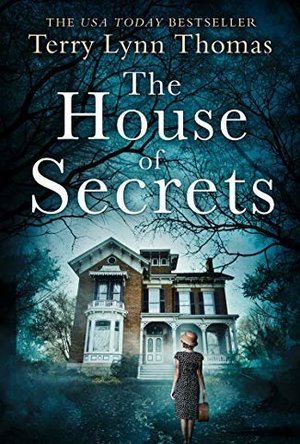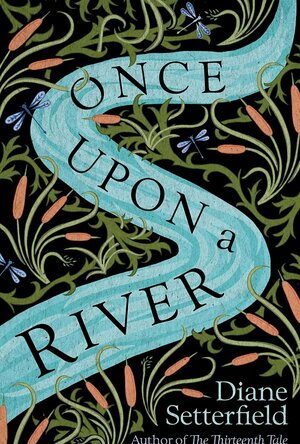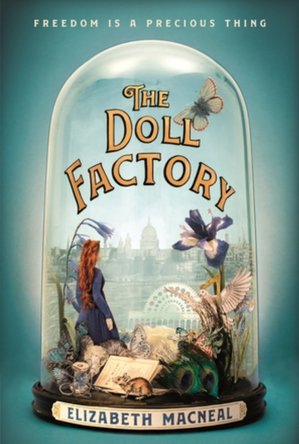Search
Search results
Molly J (Cover To Cover Cafe) (106 KP) rated My Heart Belongs on Mackinac Island: Maude’s Mooring in Books
Feb 27, 2019
Oh my word! I absolutely adored Carrie Fancett Pagels' work. She is fantabulous with creating her characters in a richly detailed way. The beautiful detail she added to the backdrop of the story really made me feel as though I was on the breathtaking Mackinac Island.
Maude and Ben, and even Jack, quickly stole my heart. Sweet little Jack had me smiling more than once! The betrayal that Maude feels when she sees her "intended" married to another woman, was quickly felt in my heart. But, when she "runs" into Ben, the sparks were there and I loved watching their story unfold.
Ms. Pagels fills this novel with wonderful descriptions to make the story blossom before the reader. The messages from God of forgiveness, hope, faith and love are woven perfectly throughout. This wonderfully chiseled,4 star book kept me turning the pages long into the night and I highly recommend it to all historical fiction lovers! The characters, the plot line, the messages will all steal your heart and take you on a whirl wind right through Mackinac Island, leaving you wanting more. Visiting Mackinac Island is now at the top of my bucket list thanks to Ms. Pagels!<a href="http://cafinatedreads.com/review-my-heart-belongs-on-mackinac-islandmaudes-mooring-by-carrie-fancett-pagels/"; target="_blank">This review was originally posted on Cafinated Reads</a>
Maude and Ben, and even Jack, quickly stole my heart. Sweet little Jack had me smiling more than once! The betrayal that Maude feels when she sees her "intended" married to another woman, was quickly felt in my heart. But, when she "runs" into Ben, the sparks were there and I loved watching their story unfold.
Ms. Pagels fills this novel with wonderful descriptions to make the story blossom before the reader. The messages from God of forgiveness, hope, faith and love are woven perfectly throughout. This wonderfully chiseled,4 star book kept me turning the pages long into the night and I highly recommend it to all historical fiction lovers! The characters, the plot line, the messages will all steal your heart and take you on a whirl wind right through Mackinac Island, leaving you wanting more. Visiting Mackinac Island is now at the top of my bucket list thanks to Ms. Pagels!<a href="http://cafinatedreads.com/review-my-heart-belongs-on-mackinac-islandmaudes-mooring-by-carrie-fancett-pagels/"; target="_blank">This review was originally posted on Cafinated Reads</a>
Billie Wichkan (118 KP) rated The House of Secrets (The Sarah Bennett Mysteries, #2) in Books
May 22, 2019
Sarah Bennett has two secrets: she sees ghosts, and she is in love with a spy.
When Sarah takes a job with occult expert Dr Matthew Geisler, he promises to help her understand the sorrowful spirit that seems to have attached itself to her.
As Sarah struggles to cope with the ghostly presence, she runs into Zeke, the man who left her six months earlier and is recovering from injuries suffered in an alleged accident. But Zeke has secrets of his own, and when an attempt is made on Geislers life, Sarah finds herself caught in a struggle between the living and the dead.
Unsure who she can trust, Sarah must solve the mystery of the soul determined to haunt her, and save Dr Geisler and herself from an unknown threat.
This book was previously published as WEEPING IN THE WINGS
This is actually a historical fiction, paranormal, mystery, romance book. I thought it was going to be more paranormal mystery with a little hint of romance.
The characters were lovable and the story kept me wanting more!
I liked the characters and the story was well thought out. A perfect read for fans of mysteries.
This is the first book I have read by Terry Lynn Thomas and am looking forward to reading more of her books.
Thanks to the publisher and NetGalley.
When Sarah takes a job with occult expert Dr Matthew Geisler, he promises to help her understand the sorrowful spirit that seems to have attached itself to her.
As Sarah struggles to cope with the ghostly presence, she runs into Zeke, the man who left her six months earlier and is recovering from injuries suffered in an alleged accident. But Zeke has secrets of his own, and when an attempt is made on Geislers life, Sarah finds herself caught in a struggle between the living and the dead.
Unsure who she can trust, Sarah must solve the mystery of the soul determined to haunt her, and save Dr Geisler and herself from an unknown threat.
This book was previously published as WEEPING IN THE WINGS
This is actually a historical fiction, paranormal, mystery, romance book. I thought it was going to be more paranormal mystery with a little hint of romance.
The characters were lovable and the story kept me wanting more!
I liked the characters and the story was well thought out. A perfect read for fans of mysteries.
This is the first book I have read by Terry Lynn Thomas and am looking forward to reading more of her books.
Thanks to the publisher and NetGalley.
Nicole Hadley (380 KP) rated Desert Moon: Also Includes Bonus Story of Honor Bond by Colleen L. Reece in Books
Jun 18, 2018
Desert Moon by Susan Page Davis is a wonderful historical fiction. The story takes place in Arizona. There is a sweet romance throughout the story with a little bit of danger and mystery added. The story begins fast with a stage coach robbery and then blames of the crime are made and with evidence.
The main character, Julia Newman, is a young lady that makes the difficult decisions. Julia receives double bad news in a short amount of time. First she learns of her mother's death, then she learns that her brother is accused of robbing a stagecoach and the person who informed her is the man that Julie has always love, Deputy Adam Scott.
Julie left home to go to school to become a teacher because she could not stand to be near the man she loved, Deputy Adam Scott. On her way home, Julie learns that the stagecoach she is riding in has been robbed. Deputy accused Julie's brother of the crime, which frustrates her. Julie tries to convince Deputy Adam Scott of her brother's innocence but then finds out that her brother has gone mission. During this exchange, Julie discovers that her feelings for Deputy Adam Scott has not gone away as she hoped would happen when she went away to school.
Thank you to NetGalley and Barbour Books for the ARC in exchange for an honest review.
The main character, Julia Newman, is a young lady that makes the difficult decisions. Julia receives double bad news in a short amount of time. First she learns of her mother's death, then she learns that her brother is accused of robbing a stagecoach and the person who informed her is the man that Julie has always love, Deputy Adam Scott.
Julie left home to go to school to become a teacher because she could not stand to be near the man she loved, Deputy Adam Scott. On her way home, Julie learns that the stagecoach she is riding in has been robbed. Deputy accused Julie's brother of the crime, which frustrates her. Julie tries to convince Deputy Adam Scott of her brother's innocence but then finds out that her brother has gone mission. During this exchange, Julie discovers that her feelings for Deputy Adam Scott has not gone away as she hoped would happen when she went away to school.
Thank you to NetGalley and Barbour Books for the ARC in exchange for an honest review.
David McK (3716 KP) rated Brothers in Blood (Eagles of the Empire 13) in Books
Jan 30, 2019
13. Unlucky for some?
The reason I bring that up is because this is the 13th entry in the Cato and Macro series that began way back in 2001 with [b: Under the Eagle|578428|Under the Eagle (Eagle, #1)|Simon Scarrow|https://d.gr-assets.com/books/1315349321s/578428.jpg|565359] and, by now, you pretty much know what to expect!
Taking place not long after [b: The Blood Crows|18484220|The Blood Crows (Eagle, #12)|Simon Scarrow|https://d.gr-assets.com/books/1380275584s/18484220.jpg|25144364], this is also set back in Brittania, with the culmination (?) of the campaign against Caratacus.
Somehow, however, I found this to be 'flatter' than the previous novels; just not as engaging as before. I don't know whether this is to do with the change in the circumstances between Cato and Macro or in the fact that I've been reading quite a few historical fiction novels recently or what, but this (I felt) was just not as good as the earlier entries in the series.
(Oh, and as an aside: my version came with a short story 'The Red Sail' included, with that story having two endings. All in all, I think I actually preferred the alternative ending - every hero, after all, needs his nemesis. Batman has the Joker, Superman has Lex Luthor, Sherlock Holmes had Moriarity .. )
The reason I bring that up is because this is the 13th entry in the Cato and Macro series that began way back in 2001 with [b: Under the Eagle|578428|Under the Eagle (Eagle, #1)|Simon Scarrow|https://d.gr-assets.com/books/1315349321s/578428.jpg|565359] and, by now, you pretty much know what to expect!
Taking place not long after [b: The Blood Crows|18484220|The Blood Crows (Eagle, #12)|Simon Scarrow|https://d.gr-assets.com/books/1380275584s/18484220.jpg|25144364], this is also set back in Brittania, with the culmination (?) of the campaign against Caratacus.
Somehow, however, I found this to be 'flatter' than the previous novels; just not as engaging as before. I don't know whether this is to do with the change in the circumstances between Cato and Macro or in the fact that I've been reading quite a few historical fiction novels recently or what, but this (I felt) was just not as good as the earlier entries in the series.
(Oh, and as an aside: my version came with a short story 'The Red Sail' included, with that story having two endings. All in all, I think I actually preferred the alternative ending - every hero, after all, needs his nemesis. Batman has the Joker, Superman has Lex Luthor, Sherlock Holmes had Moriarity .. )
Christine A. (965 KP) rated Once Upon a River in Books
Dec 19, 2018
I was provided with a complimentary copy of this book so I could give an honest review.
"Once Upon the River" by Diane Setterfield is a difficult book to categorize. It’s part fairy tale, part mystery, part fantasy, and has a dash of historical fiction thrown in for good measure. It revolves around a little town, its pub, its residents, and the river that flow nearby.
The residents are a colorful cast of characters. I enjoyed Setterfield’s use of the pub’s regulars and how they helped move the story along with their storytelling. Storytelling is a significant topic discussed in the story.
I found the beginning of the story confusing. I think it was because of all of the people involved in the storyline. Three separate storylines run parallel and intermingle in the story. Once I was able to keep the characters straight I thoroughly enjoyed the book.
I also listened to a preview of the corresponding audiobook and recommend that also. The narrator, Juliet Stevenson, uses different voices that allows the listener to clearly recognize that character.
I devoured Setterfield’s “The Thirteenth Tale” (my rating is 4 out of 5 stars) and now “Once Upon a River” (4 stars rating). Diane Setterfield is now an author I follow and am looking forward to her next story.
"Once Upon the River" by Diane Setterfield is a difficult book to categorize. It’s part fairy tale, part mystery, part fantasy, and has a dash of historical fiction thrown in for good measure. It revolves around a little town, its pub, its residents, and the river that flow nearby.
The residents are a colorful cast of characters. I enjoyed Setterfield’s use of the pub’s regulars and how they helped move the story along with their storytelling. Storytelling is a significant topic discussed in the story.
I found the beginning of the story confusing. I think it was because of all of the people involved in the storyline. Three separate storylines run parallel and intermingle in the story. Once I was able to keep the characters straight I thoroughly enjoyed the book.
I also listened to a preview of the corresponding audiobook and recommend that also. The narrator, Juliet Stevenson, uses different voices that allows the listener to clearly recognize that character.
I devoured Setterfield’s “The Thirteenth Tale” (my rating is 4 out of 5 stars) and now “Once Upon a River” (4 stars rating). Diane Setterfield is now an author I follow and am looking forward to her next story.
Christine A. (965 KP) rated The Doll Factory in Books
Feb 7, 2020
I was provided with a complimentary copy of this book so I could give an honest review.
The Doll Factory is the debut novel of Elizabeth Macneal. It is not a children's book. Before reading it, some reviewers thought it could be because of the cover. Afterward, they realized they were mistaken.
It is a historical fiction novel set in 1850 London. It revolves around Iris, a doll maker, who dreams of a better life. Iris knows her life drastically changes when she meets Louis Frost, a painter, who agrees to teach her to paint in exchange for sitting as his model. What she does not know is it also drastically changes with a brief exchange with Silas, a strange collector who is entranced and quickly becomes obsessed with Iris.
The story is a slow burn and took a while for me to really get into it. It was because of this, the story felt longer than 336 pages. Macneal's description of Silas's increasing obsession with Iris is creepy, dark, and extremely believable. What made it creepier is that Iris does not even remember meeting Silas. Yet, he believes Iris is as infatuated with him as he is with her. This theme has been done before but the 1850 London setting helps make the obsession even darker.
This 200-word review was published on Philomathinphila.com on 2/6/2020.
The Doll Factory is the debut novel of Elizabeth Macneal. It is not a children's book. Before reading it, some reviewers thought it could be because of the cover. Afterward, they realized they were mistaken.
It is a historical fiction novel set in 1850 London. It revolves around Iris, a doll maker, who dreams of a better life. Iris knows her life drastically changes when she meets Louis Frost, a painter, who agrees to teach her to paint in exchange for sitting as his model. What she does not know is it also drastically changes with a brief exchange with Silas, a strange collector who is entranced and quickly becomes obsessed with Iris.
The story is a slow burn and took a while for me to really get into it. It was because of this, the story felt longer than 336 pages. Macneal's description of Silas's increasing obsession with Iris is creepy, dark, and extremely believable. What made it creepier is that Iris does not even remember meeting Silas. Yet, he believes Iris is as infatuated with him as he is with her. This theme has been done before but the 1850 London setting helps make the obsession even darker.
This 200-word review was published on Philomathinphila.com on 2/6/2020.
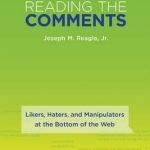
Reading the Comments: Likers, Haters, and Manipulators at the Bottom of the Web
Book
Online comment can be informative or misleading, entertaining or maddening. Haters and manipulators...

Clarissa Oakes
Book
Patrick O'Brian's Aubrey-Maturin tales are widely acknowledged to be the greatest series of...
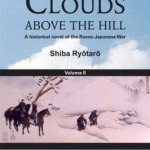
Clouds Above the Hill: A Historical Novel of the Russo-Japanese War: Volume 2
Phyllis Birnbaum and Shiba Ryotaro
Book
Clouds above the Hill is one of the best-selling novels ever in Japan, and is now translated into...
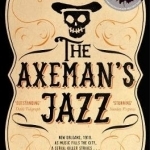
The Axeman's Jazz
Book
Inspired by a true story, set against the heady backdrop of jazz-filled, mob-ruled New Orleans, The...

